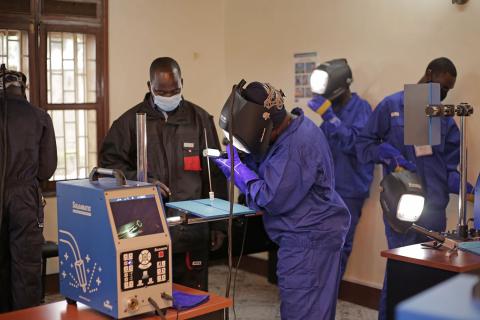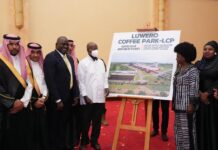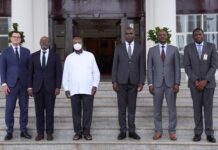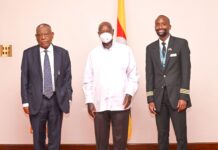By URN
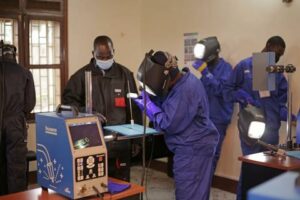 A group of 200 youth have qualified for the final training and deployment in the oil and gas industry, in the production and commercial stages.
A group of 200 youth have qualified for the final training and deployment in the oil and gas industry, in the production and commercial stages.
This comes as the companies commence drilling wells in the Tilenga and Kingfisher development projects, on the road toward commercial production in 2025.
The two-and-a-half-year training course will start at the Uganda Petroleum Institute, Kigumba (UPIK), while other stages will lead the trainees to institutions and TotalEnergies installations in France and other countries.
The exercise started early last year with a free online program dubbed the Tilenga MOOC (Tilenga Massive Open Online Course) with more than 30,000 people logging in, and at the time, the aim was to select 120-150 finalists to become production operators, maintenance, and inspection technicians for the Tilenga project.
Flagging off the training in Kampala, Lindah Nalubanga, the head of manpower regulation at the Petroleum Authority of Uganda, said this is a good solution to the dilemma employers have with fresh university graduates.
According to her, it answers the challenge of employability of the graduates.
The minimum qualification of the applicants was set as Senior Six (Uganda Advanced Certificate of Education), and currently, most of the trainees have either graduated or are still undergoing their tertiary education.
Philippe Groueix, the General Manager TotalEnergies Uganda, says the courses to be undertaken at the TotalEnergies Academy include theoretical training in Oil and Gas, Production, Maintenance, as well as Health, Safety, and Environment.
About 31 percent of the trainees will specialize in production, 27 percent in Mechanical Maintenance, 26 in Instrumentation Maintenance, and 16 in Electrical Maintenance.
The certificate, according to him is the best offered in the oil and gas training and the graduates will be certified to work anywhere in the world, but he emphasized that the main focus is on safety at work because of the dangers posed to the workers in the industry.
The trainees will have all their training needs covered by TotalEnergies, including tuition, travel, accommodation, meals, and stipend, which all total 60,000 dollars (about 225 million shillings).
The trainees were selected from around the country, but the company says there was a deliberate move to ensure a good number came from the host communities of the main oil and gas activities in mid-western Uganda.
Apart from the selection from all regions, Groueix, the number of female participants who qualified is a good step towards achieving their target of the female employee numbers in the industry.
The first cohort comprising 100 trainees is expected to be mobilized on-site in the first quarter of 2025, while the second batch will be mobilized in the second half of 2025.
On the capacity of the local system to train professionals for the oil and gas industry, the Deputy Academic Registrar at UPIK says that over the recent years, the institute has been equipped with modern facilities with the help of the government and the World Bank.
According to him, the recent review of the curriculum will also help them meet the current needs of the market.
Some of the beneficiary trainees, Gladys Adoru, Zakayo Bwegendaho, and Akidi Maurine gave their views on the course and the journey ahead of them.

